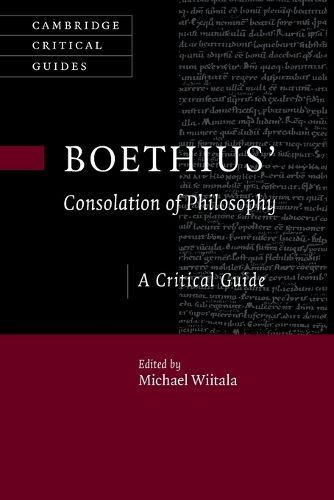Readings Newsletter
Become a Readings Member to make your shopping experience even easier.
Sign in or sign up for free!
You’re not far away from qualifying for FREE standard shipping within Australia
You’ve qualified for FREE standard shipping within Australia
The cart is loading…






Boethius' Consolation of Philosophy was one of the most widely read and influential texts in medieval Europe, considering questions such as How can evil exist in a world governed by God? And how is happiness still attainable despite the vicissitudes of fortune? Written as a dialogue between Boethius and Lady Philosophy, and alternating between poetry and prose, the Consolation is of interest not only to philosophers but to students of classics and literature as well. In this Critical Guide, the first collection of philosophical essays devoted exclusively to the Consolation, thirteen new essays demonstrate its ongoing vitality and break open its riches for a new generation of readers. The essays reflect the diverse array of approaches in contemporary scholarship and attend to both the literary features and the philosophical content of the Consolation. The volume will be invaluable for scholars of medieval philosophy, medieval literature, and the history of ideas.
$9.00 standard shipping within Australia
FREE standard shipping within Australia for orders over $100.00
Express & International shipping calculated at checkout
Stock availability can be subject to change without notice. We recommend calling the shop or contacting our online team to check availability of low stock items. Please see our Shopping Online page for more details.
Boethius' Consolation of Philosophy was one of the most widely read and influential texts in medieval Europe, considering questions such as How can evil exist in a world governed by God? And how is happiness still attainable despite the vicissitudes of fortune? Written as a dialogue between Boethius and Lady Philosophy, and alternating between poetry and prose, the Consolation is of interest not only to philosophers but to students of classics and literature as well. In this Critical Guide, the first collection of philosophical essays devoted exclusively to the Consolation, thirteen new essays demonstrate its ongoing vitality and break open its riches for a new generation of readers. The essays reflect the diverse array of approaches in contemporary scholarship and attend to both the literary features and the philosophical content of the Consolation. The volume will be invaluable for scholars of medieval philosophy, medieval literature, and the history of ideas.